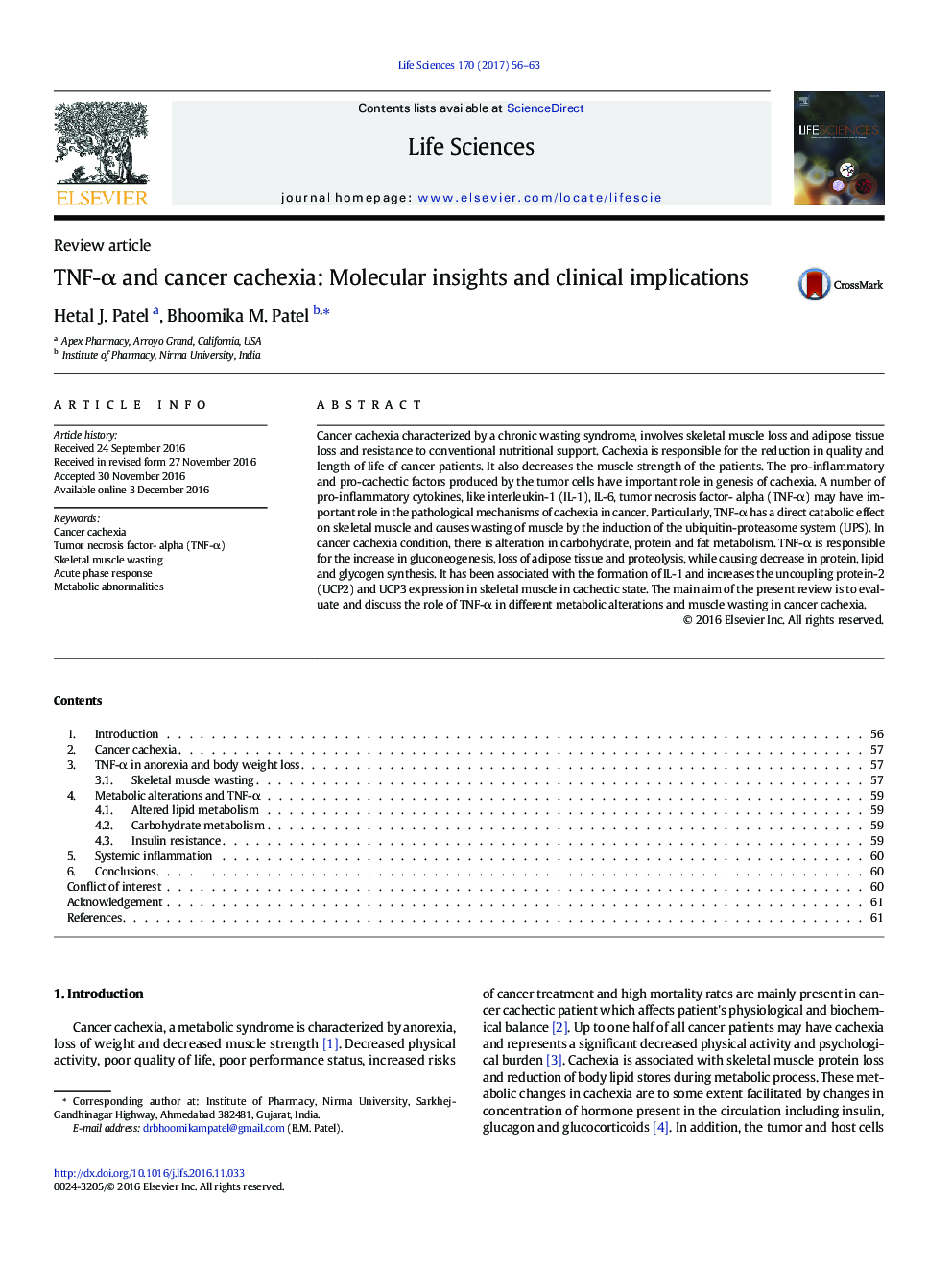| Article ID | Journal | Published Year | Pages | File Type |
|---|---|---|---|---|
| 5556989 | Life Sciences | 2017 | 8 Pages |
Cancer cachexia characterized by a chronic wasting syndrome, involves skeletal muscle loss and adipose tissue loss and resistance to conventional nutritional support. Cachexia is responsible for the reduction in quality and length of life of cancer patients. It also decreases the muscle strength of the patients. The pro-inflammatory and pro-cachectic factors produced by the tumor cells have important role in genesis of cachexia. A number of pro-inflammatory cytokines, like interleukin-1 (IL-1), IL-6, tumor necrosis factor- alpha (TNF-α) may have important role in the pathological mechanisms of cachexia in cancer. Particularly, TNF-α has a direct catabolic effect on skeletal muscle and causes wasting of muscle by the induction of the ubiquitin-proteasome system (UPS). In cancer cachexia condition, there is alteration in carbohydrate, protein and fat metabolism. TNF-α is responsible for the increase in gluconeogenesis, loss of adipose tissue and proteolysis, while causing decrease in protein, lipid and glycogen synthesis. It has been associated with the formation of IL-1 and increases the uncoupling protein-2 (UCP2) and UCP3 expression in skeletal muscle in cachectic state. The main aim of the present review is to evaluate and discuss the role of TNF-α in different metabolic alterations and muscle wasting in cancer cachexia.
Graphical abstractDownload high-res image (187KB)Download full-size image
